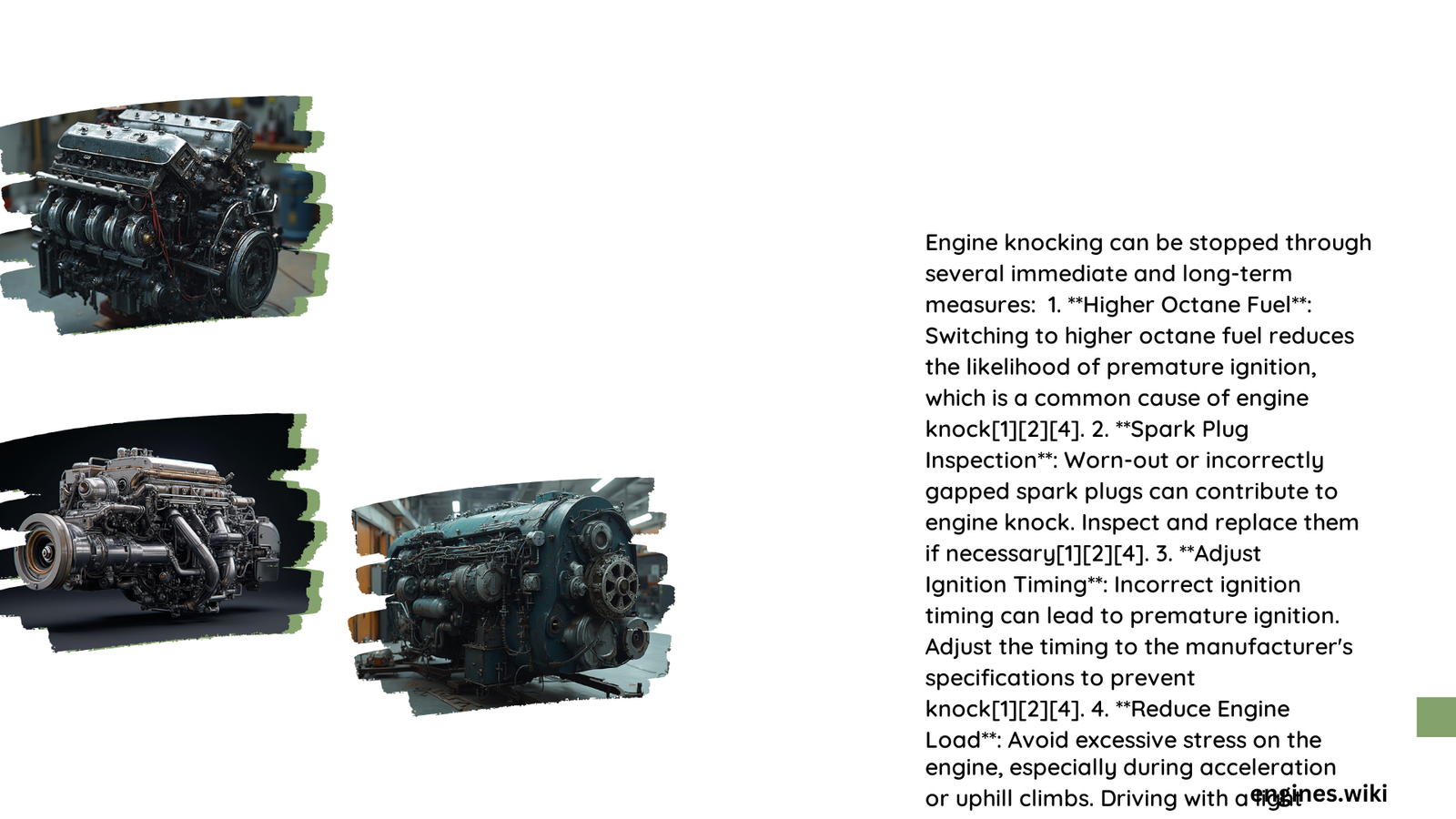Engine knocking represents a critical mechanical issue that can cause significant damage to an automotive powerplant. Understanding the precise mechanisms that stop engine knocking involves a complex interplay of fuel quality, engine design, and advanced technological interventions. Vehicle owners and mechanics must strategically address multiple factors to effectively prevent this potentially destructive phenomenon.
What Causes Engine Knock in the First Place?
Engine knock occurs when fuel combusts prematurely inside the engine cylinder, creating uncontrolled pressure waves that can damage internal components. The primary culprits include:
- Inappropriate fuel octane ratings
- Excessive engine compression
- Incorrect ignition timing
- Carbon buildup in combustion chambers
How Can High-Octane Fuel Prevent Knocking?

High-octane fuels provide superior resistance to premature combustion. Consider the following comparative analysis:
| Octane Rating | Compression Tolerance | Knock Resistance |
|---|---|---|
| 87 (Regular) | Low (8:1 – 9:1) | Minimal |
| 91 (Premium) | Medium (9:1 – 11:1) | Moderate |
| 93 (Super) | High (11:1+) | Excellent |
Key Strategies to Eliminate Engine Knock
Optimize Fuel Selection
Selecting the correct fuel for your specific engine is paramount. High-performance vehicles with higher compression ratios demand premium fuel to prevent detonation. Manufacturers typically recommend specific octane ratings based on engine design.
Advanced Timing Adjustments
Modern engine control units (ECUs) can dynamically adjust ignition timing to mitigate knock risks. These sophisticated systems:
- Monitor combustion characteristics
- Detect early signs of detonation
- Retard spark timing to prevent damage
- Maintain optimal engine performance
Maintenance Techniques
Regular maintenance plays a crucial role in preventing engine knock:
- Clean fuel injectors
- Remove carbon deposits
- Use high-quality fuel additives
- Perform routine spark plug replacements
Technical Considerations for Knock Prevention
Professional mechanics recommend several advanced techniques:
- Install knock sensors
- Use fuel stabilizers
- Conduct periodic compression tests
- Monitor engine temperature
Cost-Effective Knock Prevention
While preventing engine knock might seem expensive, strategic investments can save significant repair costs:
- Premium fuel: $0.50 – $1.00 extra per gallon
- Fuel additives: $5 – $20 per treatment
- Professional diagnostics: $100 – $300 per session
When to Seek Professional Help
Consider professional intervention if you experience:
– Persistent knocking sounds
– Reduced engine performance
– Increased fuel consumption
– Check engine light activation
Technological Innovations
Emerging technologies like artificial intelligence and advanced engine management systems continue to revolutionize knock prevention, offering more precise and responsive solutions.
Conclusion
Preventing engine knock requires a holistic approach combining proper fuel selection, regular maintenance, and understanding your vehicle’s specific requirements. By implementing these strategies, drivers can significantly extend engine life and maintain optimal performance.
